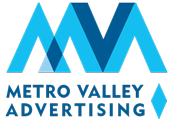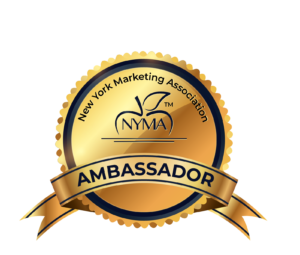The Psychology of Effective Legal Advertising: What Makes Potential Clients Call
Personal injury advertising is not just about showing your credentials. It’s about understanding how people think when they need help. Understanding the psychology of effective legal advertising can really accelerate results.
Your potential clients make decisions based on emotions first. Then they justify those choices with logic. Understanding this changes everything about your personal injury marketing approach.
The Injured Client’s Mind
When someone gets hurt, their world turns upside down. Fear takes over. People question if they will fully recover and when. They worry about medical bills. They stress about lost wages. Moreover, they feel overwhelmed by legal terms they don’t understand.
This emotional state affects how they choose an attorney. They don’t want the smartest lawyer. Prospects want someone who makes them feel safe. They need to trust you before they call.
Most personal injury advertising misses this point completely. Lawyers focus on their wins and awards. However, scared clients care more about feeling understood. They want to know you’ve helped people like them before.
Building Trust Through Psychology
Trust is the foundation of all personal injury lead generation. Without it, your advertising budget gets wasted. People won’t call unless they believe you can help them.
Start by showing real results from real cases. Don’t just list dollar amounts. Instead, tell the story behind each settlement. Show how you helped families recover. This creates emotional connection.
Next, use authentic client testimonials strategically. People trust other people more than they trust lawyers. Furthermore, testimonials prove you deliver results. Choose testimonials that address common fears about hiring attorneys.
Professional images matter too. Your office photos should look welcoming, not intimidating. Show yourself in casual business attire. This makes you seem approachable. Remember, injured clients often feel powerless. They need lawyers who feel human.
How to Ethically Persuade
Ethical persuasion starts with genuine care for clients. You can influence decisions without manipulating people. The key is using proven psychological principles correctly.
Social proof works powerfully in personal injury marketing. When people see others like them getting help, they feel safer reaching out. Use case studies that match your target audience. Show diverse clients who faced similar challenges.
Authority builds confidence in your abilities. However, don’t just list your credentials. Instead, explain what they mean for clients. Tell them how your experience helps their specific situation. This transforms boring facts into compelling benefits.
Reciprocity creates connection with potential clients. Give valuable information freely through your advertising. Answer common questions about personal injury law. When you help first, people want to work with you.
Urgency works when used honestly. Statutes of limitations are real deadlines. Evidence disappears over time. Explain these facts without creating false pressure. This protects their rights while encouraging action.
Psychology Across Your Sales Funnel
Different stages of your lead generation process need different psychological approaches. Understanding this improves your personal injury advertising results dramatically.
Awareness Stage Psychology
At first, people don’t know they need a lawyer. They might not even know their rights. Your job is getting their attention when they start searching for answers.
Use problem-focused messaging that identifies their pain points. Talk about medical bills piling up. Mention insurance companies denying claims. Address the stress of missing work while recovering.
Educational content works well here. Create articles about what to do after accidents. Make videos explaining personal injury law basics. This builds authority while helping people understand their situation.
Search engine optimization should target emotional keywords. People search for “what to do after car accident” more than “personal injury lawyer.” Moreover, they use phrases like “insurance won’t pay” or “hurt at work.” Match their emotional state with your content.
Engagement Stage Psychology
Once people know about you, they need reasons to stay interested. This stage builds deeper connections through valuable information and social proof.
Create psychological safety by addressing their concerns directly. Many people worry about lawyer costs. Others fear long legal battles. Explain your process clearly. Show how you protect clients from financial risk.
Use progressive disclosure to avoid overwhelming visitors. Don’t dump all information at once. Instead, guide them through your website naturally. Let them discover what they need when they’re ready.
Personalization increases engagement significantly. Speak to specific types of injuries or accidents. Create separate pages and videos for car accidents, slip and falls, and workplace injuries. This makes each visitor feel understood.
Retargeting campaigns work because of familiarity bias. People trust names they recognize. When your ads appear multiple times, you become the obvious choice. However, vary your messages to avoid annoying people.
Conversion Stage Psychology
Getting people to call requires removing barriers and reducing risk. This final stage determines whether your personal injury marketing succeeds or fails.
Make calling as easy as possible. Use large, clear phone numbers. Put them in multiple places on every page. Additionally, offer online forms for people who prefer typing to talking.
Risk reversal eliminates the biggest barrier to calling. Offer free consultations clearly and prominently. Explain that consultation costs nothing and creates no obligation. This removes financial fear from their decision.
Social proof works best right before conversion. Put testimonials near contact forms. Show recent case results above phone numbers. This gives final reassurance when people are ready to act.
Clear expectations reduce anxiety about calling. Tell them what happens during consultation. Explain how long it takes. Let them know what information to bring. This makes the process feel manageable.
Common Mistakes That Kill Conversions
Many personal injury attorneys waste money on ineffective advertising. They make psychological mistakes that push clients away instead of attracting them.
Generic messaging fails because it doesn’t connect emotionally. Saying you’re “experienced” or “aggressive” means nothing. Every lawyer claims these things. Instead, focus on how you help people in specific situations.
Over-promising creates distrust and legal problems. Don’t guarantee specific results or claim to be “the best.” People see through these claims quickly. Furthermore, bar associations prohibit many of these statements.
Ignoring mobile users costs you leads. Most people search for lawyers on phones after accidents. If your website doesn’t work well on mobile, they’ll call someone else instead.
Complicated forms reduce conversions dramatically. Long forms with many required fields scare people away. Ask for only essential information initially. You can gather details later during consultation.
Measuring What Matters
Track metrics that show psychological impact, not just website traffic. Call volume matters more than page views. Consultation quality beats consultation quantity.
Monitor which messages generate the most calls. Test different emotional appeals in your advertising. Some audiences respond better to fear-based messages. Others prefer hope-focused content.
Analyze which traffic sources produce the best clients. Not all leads are equal. Referrals often convert better than paid advertising. However, both play important roles in comprehensive personal injury marketing.
Your Next Steps
Start by understanding your clients’ emotional journey. Map out their fears and concerns at each stage. Then create advertising that addresses these feelings directly.
The Psychology of Effective Legal Advertising can be used ethically. Remember that psychology isn’t manipulation. It’s understanding human nature to serve people better. When you help injured clients feel understood and supported, everyone wins.
The most successful personal injury advertising combines psychological insight with genuine care for clients. This approach builds stronger practices and helps more people get the justice they deserve.



